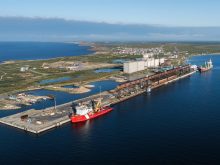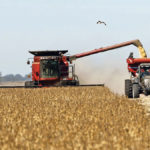TORONTO – Canadian exporters are not being paranoid when they worry that the international response to climate change may bring in a new era of protectionism, says a conservative American trade researcher.Agriculture likely would be affected, added Sallie James, an analyst with the Washington-based Cato Institute.She told a May 15 workshop organized by the Canadian Agricultural Trade Policy and Competitiveness Research Network that there is a real possibility that countries could begin imposing tariffs on goods from countries perceived to have weaker climate change policies than they do.“There absolutely is a real danger that in the name of environmental action, countries could impose trade restrictions that really are aimed at protecting jobs and competitive advantage,” she said in an interview after her speech.Many Canadian agricultural interests say the biggest risk is that the United States could penalize Canadian imports if it moves further than Canada in carbon emission controls.However, James said the real danger is action by China.“My guess is that Canada will find some way to stay in step with whatever comes out of the American process,” she said.“I think the real danger is China.”She said international rules must be developed to determine how national greenhouse gas emission controls are judged, what international body regulates the system and what sanctions can be brought against the laggards.However, North American exports such as grain could be affected if China, which is a major emitter, decided to judge other countries by their per capita emissions.Because of its large population, China’s per capita emissions are less than five tonnes. By comparison, per capita emissions are close to 20 tonnes in the U.S. and close to 19 tonnes in Canada.“If that is the route China took and there are not rules to stop it, North America could be in trouble.”She said much of the rhetoric in the U.S. congressional debate about climate change legislation makes it sound like an environmental response, but it is being sold to voters as jobs legislation.
Read Also

Agriculture ministers commit to enhancing competitiveness
Canadian ag ministers said they want to ensure farmers, ranchers and processors are competitive through ongoing regulatory reform and business risk management programs that work.














